France has opened up Covid-19 vaccines to all adults, a week before Germany, as Europe races to avoid another wave of infections caused by new virus variants.
Until now, French authorities gave priority to people over 50, people in "priority professions" or younger adults with underlying health problems.
So far, 25.4 million people have received a first shot of a vaccine, representing about 38% of the population and nearly one in two adults.
Nearly 12 million have received the two shots required for full protection.
As the French enjoy a degree of freedom following the reopening of cafes, restaurants and museums two weeks ago, initially high levels of vaccine scepticism have begun to subside.
A Cevipof poll conducted in early May showed that 65% of adults planned to get vaccinated, up from 48% in February.
"I am fully convinced that we are going to see a lot of people getting vaccinated," Professor Alain Fischer, the immunologist who heads the government's vaccination advisory board, said, adding that immunisation was the key to "getting back an increasingly normal life."
With 28 million adults eligible for a first shot, but only around half a million appointments available each day, many people have opted to travel outside their neighbourhood or even their region to receive a Pfizer or Moderna vaccine.
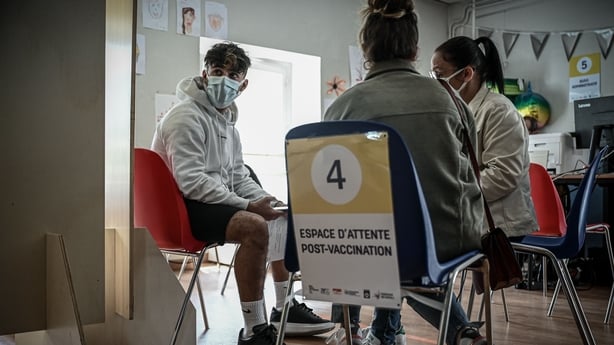
Vaccinations with the AstraZeneca and Janssen (Johnson & Johnson) jabs are only open to those aged 55, after cases of potentially deadly blood clots in a very small number of younger people vaccinated.
The government is hoping that the 76.7 million vaccines which it is expecting to receive in June will help it meet demand.
After an initially slow start to its vaccination drive in January, France is aiming to close the gap with Britain, Germany and other neighbours.
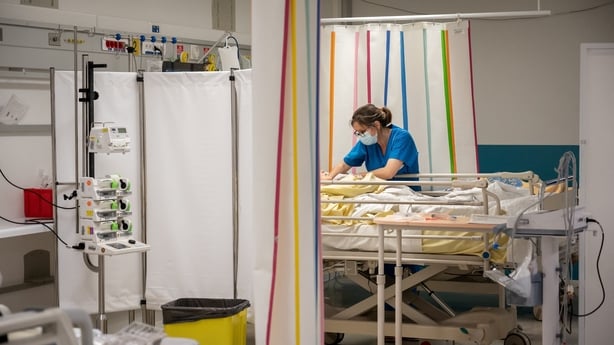
Britain, which has led the vaccine race in Europe, has given nearly 35 million people a first shot of vaccine.
Over 16 million have received a second shot.
Germany, which like France was slow to get off the mark, has also powered up its immunisation drive in recent weeks.
Over 49 million people in Europe's most populous country have received a first shot, representing around 42% of the population.
That figure is expected to rapidly increase when vaccines are made available to all Germans aged 16 and over from 7 June.
German Chancellor Angela Merkel has also plans to offer coronavirus jabs to children over the age of 12 but stressed they will not be compulsory.
In France, a third month-long lockdown in April is credited with taming a severe third wave of infections. The number of Covid-19 patients in intensive care in hospital fell to under 3,000 at the weekend, the lowest level since January.
The situation emboldened the government to reopen sidewalk cafes and restaurants after seven months on 19 May, along with museums, cinemas, theatres and non-essential shops.
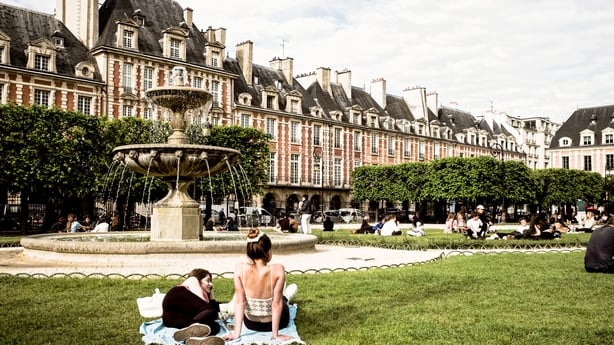
The next stage of the loosening of restrictions falls on 9 June, when cafes and restaurants will be allowed serve clients indoors and a nationwide 9pm curfew is pushed back to 11pm.
"If the fall-off continues between now and June 9... we will have a quiet summer," Arnaud Fontanet, an epidemiologist at the Institut Pasteur in Paris told the Journal du Dimanche weekly.
So far the virus has claimed 109,431 lives in France.
China reports surge of new Covid-19 cases in Guangzhou city
China has reported a sudden surge in Covid-19 infections in the country's south, with 18 new local cases yesterday in the city of Guangzhou, causing a flurry of flight cancellations.
Of the 27 new coronavirus cases reported by the national health authority in its daily updates, only seven infections were imported, with the remainder originating in Guangdong province.
Out of the 20 new locally confirmed patients yesterday, 18 were found in Guangzhou city and two in Foshan city, health authorities in Guangdong province said today.
A total of 519 flights at Guangzhou Baiyun International Airport were cancelled, accounting for 37% of total flights today, according to aviation data provider Variflight.
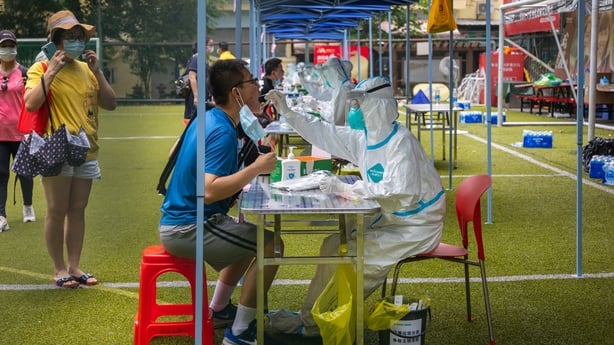
Guangzhou Baiyun International Airport, which carried 43.8m passengers last year, was the world's busiest airport in the midst of a global pandemic.
People leaving the city from airports, train stations and shuttle bus stations need to show proof of a negative Covid-19 test within three days, unless they were transiting, the city said in a statement late last night.
On Saturday, Guangzhou government ordered residents on five streets in the city's Liwan district to remain at home and suspended non-essential activities, while entertainment venues and markets were closed.
Recent infections in the city were contracted with a fast-spreading virus strain detected in India according to genome sequencing results, said Chen Bin, deputy director at the city's municipal health commission.
China also reported 19 new asymptomatic infections yesterday, which China does not classify as confirmed cases, compared with 22 a day earlier.
As of yesterday, China had a total of 91,099 confirmed Covid-19 cases, while its death toll remained unchanged at 4,636.
Vietnam to suspend incoming international flights to Hanoi
The international airport of Vietnam's capital will suspend inbound flights from abroad beginning tomorrow, the country's aviation body announced, as it grapples with a fresh wave of virus outbreaks.
A "temporary suspension of receiving international flights" will begin at Hanoi's Noi Bai International Airport from 1 June at midnight until June 7, the Civil Aviation Administration of Vietnam said in a statement.
Vietnam's health minister said over the weekend that authorities had discovered a highly infectious "new hybrid variant" - a combination of the Indian and UK variants.
Outbound international flights will continue from Hanoi, the statement said, but the government did not say if domestic flights would be part of the suspension.
Last week, Ho Chi Minh City, Vietnam's southern business hub, issued a halt on foreign arrivals in its Tan Son Nhat International Airport.
The suspension was supposed to be lifted by 4 June, but the CAAV announced Monday that it would continue until 14 June.
Vietnam has already limited entries of foreign arrivals due to its Covid-19 restrictions, and every person coming in is subjected to mandatory quarantine.
Tokyo Olympics fans to need vaccination or virus test: report
Tokyo Olympics fans may have to be vaccinated or test negative for the coronavirus before being allowed into venues, a Japanese newspaper report has said.
Cheering, eating, high-fives and drinking alcohol would also be banned under controls now being considered, the Yomiuri Shimbun daily said, citing unnamed government officials.
Organisers are set to decide in June how many spectators, if any, will be allowed to attend the pandemic-postponed Games, which are due to begin on 23 July.
Overseas fans are already barred, and the report warned domestic spectators may be denied entrance or kicked out for breaking the rules.
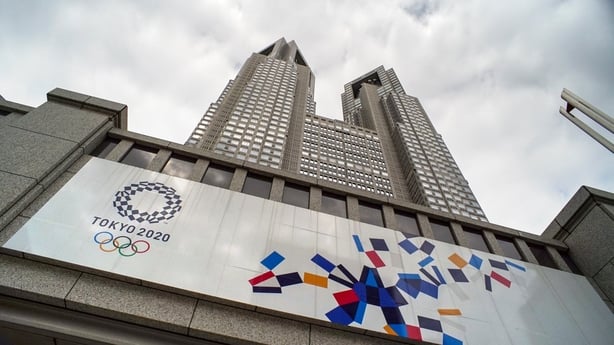
"The plan is to stop the spread of infections during games time with strict countermeasures," the paper said.
Under the plan, spectators must be able to show a vaccination certificate or a negative test taken at their own expense less than a week before entering the venue.
They must wear masks and fill in health-check sheets, and once inside must not cheer loudly or high-five each other.
Security guards would be stationed around venues monitoring behaviour, the report said, with public viewing venues cancelled or scaled down.
Japan's vaccine roll-out has been moving slowly, with less than 2.5% of the population fully vaccinated so far.
Australia's Victoria Covid-19 cluster swells
Australia's second-most populous state of Victoria, the epicentre of the country's latest coronavirus hotspot, has reported 11 new cases of community transmission and authorities warned the situation could worsen in coming days.
The state officially reported five new cases in the 24 hours to midnight.
At a press conference today, authorities announced a further six cases were recorded after the late-night cut-off, which will reflect in tomorrow's data, taking the current cluster to 51.
Victoria went into a strict seven-day lockdown on Friday after new Covid-19 infections in the state capital Melbourne ended its three-month run of zero community cases.
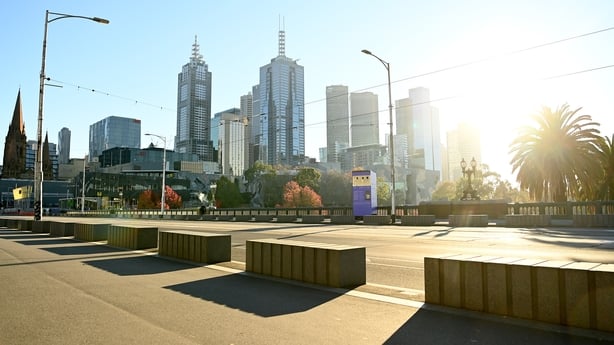
Authorities identified several Melbourne schools, supermarkets, department stores and gyms among hundreds of exposure sites.
The swelling numbers have raised questions over whether the lockdown will be extended beyond the seven days announced initially.
"The challenge ahead of us is a very, very significant one," Victorian acting Premier James Merlino told reporters. "We are seeing a small number of cases infecting a large number of contacts."
The situation was "incredibly serious" and the next few days will be critical, Mr Merlino added.
"I want to be really clear with everyone that this outbreak may well get worse before it gets better."
Medical officials have said the latest Covid-19 variant, first detected in India, was likely to be more virulent than the original strains, taking just one day to infect another person compared with earlier strains, which can take about five or six.
Pacific island Palau records first coronavirus case
The remote Pacific nation of Palau has reported its first confirmed coronavirus case, but authorities said it was historical and posed no transmission risk.
The tiny island state of 21,000 has so far managed to avoid Covid-19 after closing its borders early in the pandemic, despite the huge cost to its tourism-reliant economy.
The health ministry said a traveller who arrived in Palau earlier this month was found to have the virus, even though they tested negative once before departing for the island and twice during a two-week quarantine.
"Further tests revealed that this is a historical - past infection - case of Covid-19, and it is not infectious," it said in a statement.
The ministry estimated the person contracted the virus in January this year.
The ministry said the person was being placed in isolation and close contacts were being assessed as a precaution only.
Palau had a short-lived travel bubble with Taiwan that closed earlier this month after the latter experienced a spike in virus cases.

